The year was 1970 when a 20-year-old brunette girl timidly walked through the gates of the historic Columbia studios for her very first audition. She sang a folk song, and the young producer from “MINOS” who was there for the recording of the album “Dalaras sings Kaldaras” asked her: “Sweetheart, do you know any other songs?” “I do,” she replied, and began singing “Night Fell Without a Moon.” Everyone was stunned. The girl was Haroula Alexiou, and the producer who immediately recognized her talent and opened the door to the remarkable career that followed was Achilleas Theofilou.
But Alexiou wasn’t the only one discovered by the legendary record producer, who passed away yesterday at the age of 79. His “children” also included Giannis Parios, Vasilis Papakonstantinou, Anna Vissi, and many more stars of Greek music.
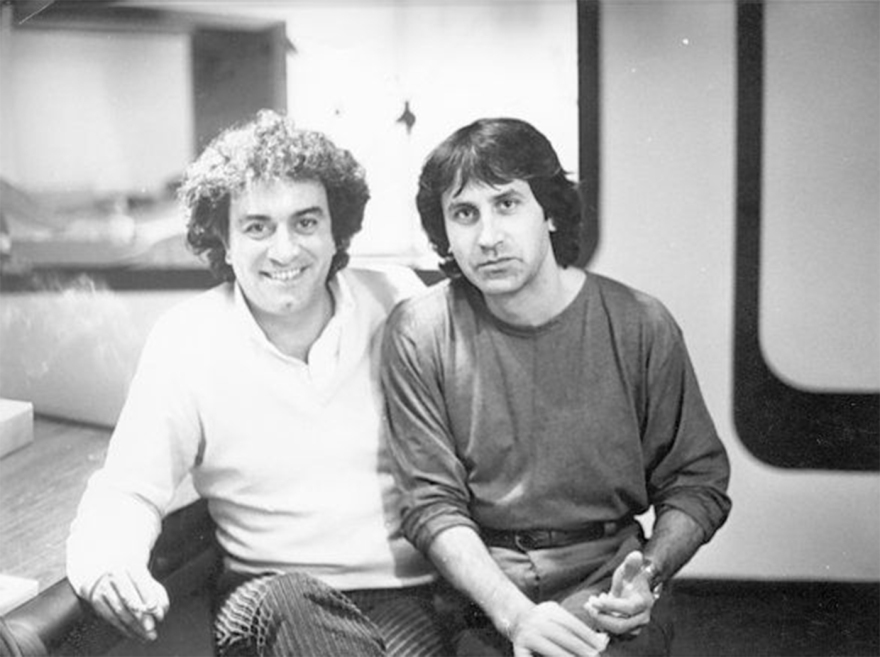
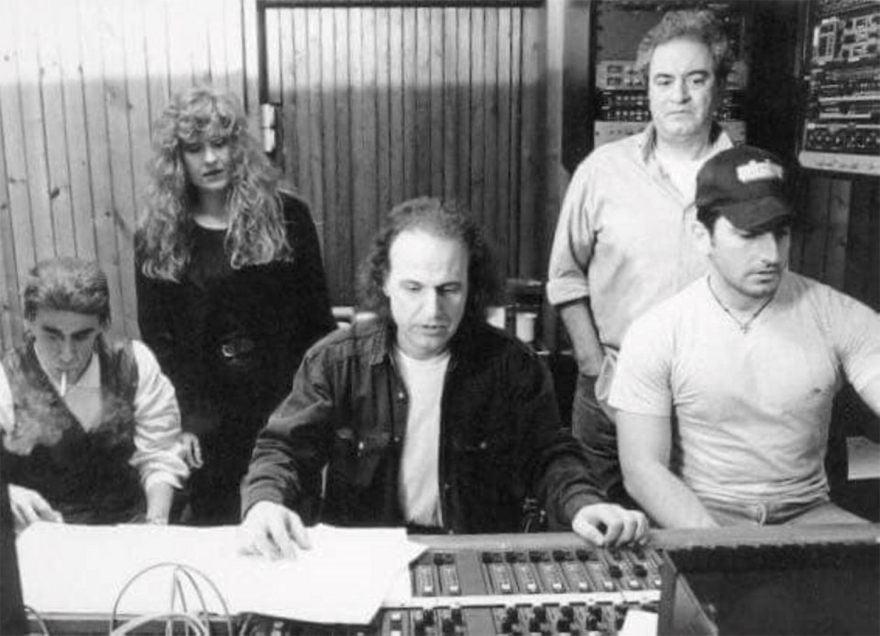
Achilleas Theofilou (top right) during a recording session with Vasilis Papakonstantinou (center)
Moreover, he was the man entrusted with the production of albums by Greece’s greatest composers: Mikis Theodorakis, Manos Hadjidakis, Yiannis Markopoulos, Apostolos Kaldaras, Dimos Moutsis, Stavros Kougioumtzis, Yiannis Spanos, Manos Loizos, Thanos Mikroutsikos.
It is therefore clear that Achilleas Theofilou’s professional path in the Greek recording industry is inextricably linked to a major chapter of the country’s musical history from 1970 onwards. This is evidenced by the dozens of albums he produced, many of which became classics:
From “18 Short Songs of a Bitter Homeland,” “Arcadia 6” and “Of Exile” by Mikis Theodorakis, to “Asia Minor” by Apostolos Kaldaras and “Citizenship” by Yiannis Markopoulos; from “Good Morning Sun,” “Songs of the Street,” “Haroula’s Songs” and “Our Songs” by Manos Loizos, to “My Life Goes in Circles” and “Love is a Dizziness” by Haris Alexiou; from “Bats and Spiders” and “I Exist” by Stelios Kazantzidis to “I Dare” by Marinella; from “At the High Windows” and “50 Years of Rebetiko Song” by Giorgos Dalaras to “Loneliness is Better,” “Island Songs,” and “Like a Crazy Truck” by Giannis Parios; and from “I’m Afraid,” “Greetings,” and “Happy Birthday” by Vasilis Papakonstantinou to “Say What You Want” and “I’m Not Going Anywhere” by Vasilis Karras!
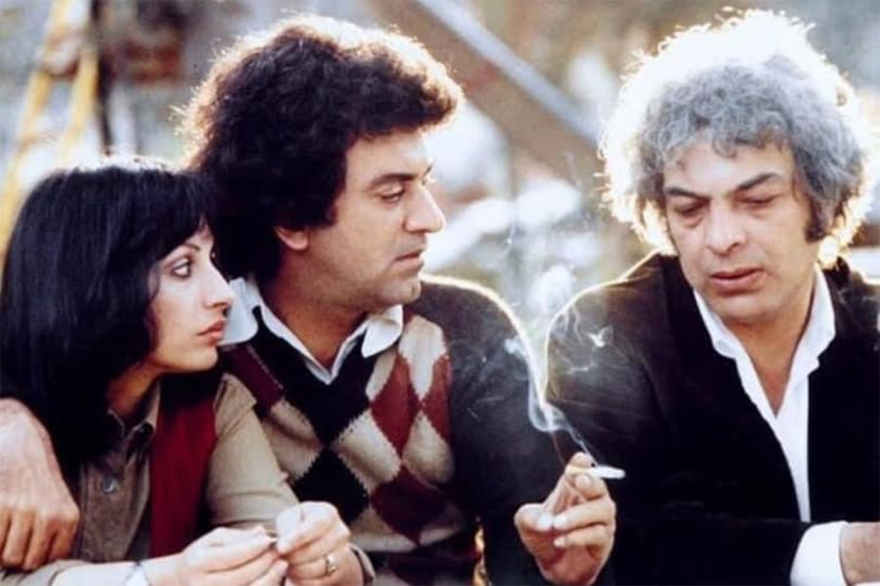
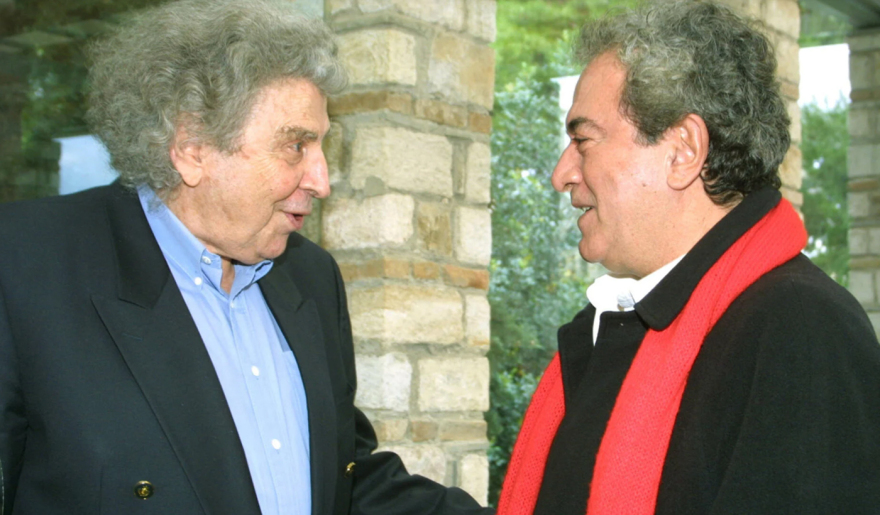
Achilleas Theofilou with the great Mikis Theodorakis
Becoming one of the top producers in the Greek music industry may not have been Achilleas Theofilou’s initial goal, but it was by no means accidental. Born in Mytilene, before joining MINOS in 1970, he had already shaped his mind and social-political awareness through studies in Political Science in Geneva and Sociology in Paris. In the City of Light, he befriended important Greek figures in the arts and letters such as Vassilis Vassilikos, Nikos Koundouros, Costas Gavras, Dimitris Christodoulou, Vasilis Diamantopoulos, and Nikos Panagiotopoulos. His thinking, his aesthetic, and his worldview were formed among a circle of distinguished, thoughtful, and creative individuals.
That’s why Minos Matsas, just two months after Theofilou joined the company to work in the press office, threw him into the deep end by putting him straight into the studios—where music history was being made. And as it turned out, his instinct was spot on. Very soon, Achilleas Theofilou took over as the head of production at the label.
Charismatic, cultivated, yet humble and gracious, Theofilou was not just a producer—he was the conductor of every record project he undertook. He would guide composers on the musical direction, recommend suitable performers, choose musicians, and spot new talent and success from miles away.


The Haroula Chapter
“Haroula is the voice of my personal waywardness,” Achilleas Theofilou once said meaningfully about the woman who left an indelible mark not only on his personal life but also on his professional career. “Achilleas Theofilou was my mentor. He made me fall in love with reading. Until then, I had the inclination, but I was still a child lacking education at home. This man carried French culture with him — we listened to music together, he introduced me to [Georges] Brassens and [Jacques] Brel, we read poetry. A great love! I owe him so much,” she has confessed.
From the day they first met at the Columbia audition, their paths never parted. He meticulously crafted her spectacular debut in the recording industry, first with the folk anthem “When a Woman Drinks”, and then through her participation in Apostolos Kaldaras’ historic album “Asia Minor.” She trusted him completely, placing her career — and her life — in his hands.
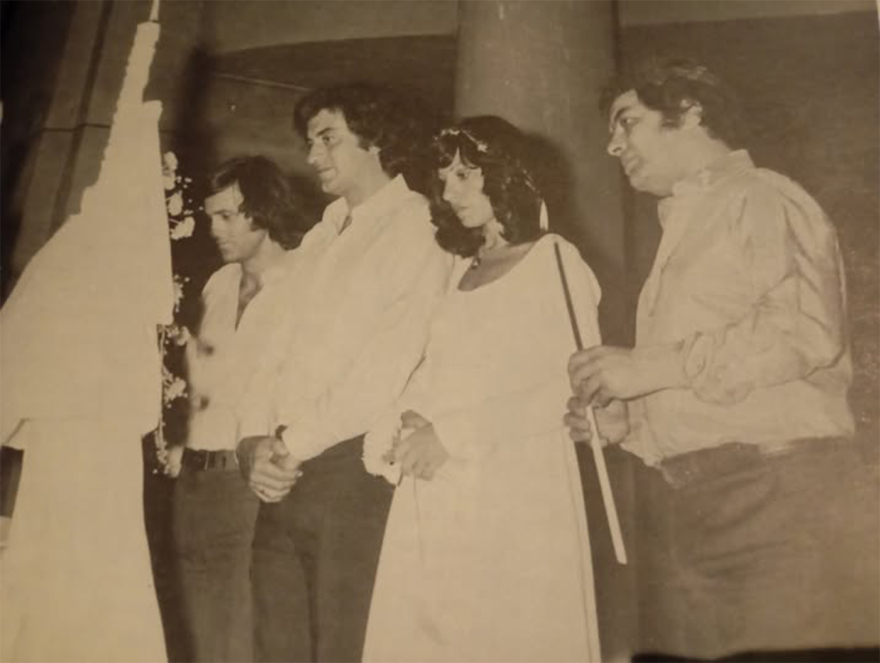
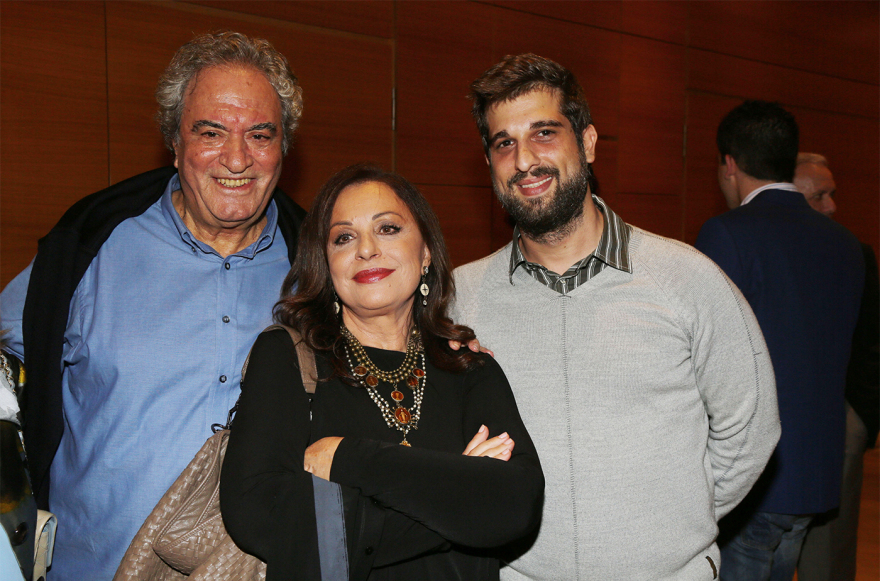
Achilleas Theofilou with Haroula Alexiou and their son, Manos
They married in July 1975, with Manos Loizos and Giorgos Dalaras as their best men. They adopted their son, Manos — Achilleas also had another son from his marriage to visual artist Anna Fotopoulou, daughter of Mimi Fotopoulos. They named their son Manos in honor of their dear friend Manos Loizos, who had just passed away too soon. They journeyed together — in life and in music — for twenty whole years. Their divorce did not mark the end of their relationship, which remained deep, meaningful, and full of love. They always stood by each other, especially in difficult times.

Achilleas Theofilou with Haroula Alexiou, with whom he had a son
Kazantzidis’ Tears
As an eyewitness to the recording sessions of the greatest names in Greek music, Achilleas Theofilou had many stories to tell — like the one involving Stelios Kazantzidis, whom he called “the greatest of the greats.”
At the time, Kazantzidis had already separated from Marinella, and she had released a song called “Men Don’t Cry.” Shortly afterward, lyricist Pythagoras wrote a line for Kazantzidis: “Let those who failed say what they will, but madam, men do cry.”
Each time Stelios tried to sing it in the studio, he would break into tears. It took great effort to complete the recording.

Ask me anything
Explore related questions







